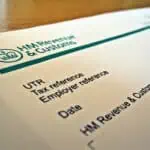Do I Qualify as a UK Tax Resident?
Reading Time:
If you are a UK citizen, either employed or living abroad, you may still be classified as a UK tax resident and can be subject to tax. This can be a complicated topic to grasp if you don’t take the time to examine your situation thoroughly. Our blog will discuss everything you need to know about determining your tax status.

Why It’s Necessary to Know My Status?
Meet the criteria for tax residency in the UK. You will be subject to UK taxation on your global income unless you can prove that your permanent residence is located elsewhere (your “domicile”).
Some examples are:
- Income, if you work overseas
- Interest on savings and investments made abroad
- Income from a rental property in another country
- Pension payments acquired from foreign employers
How Do I know When I’m a Tax Resident?
If one of the following statements is true, you will be considered a UK resident.
You don’t pass any of the automatic tests.
You pass one of the UK tests or the sufficient ties test.
Residency Tests
HMRC established the Statutory Residence Test (SRT) in 2013 to determine whether a person is a tax resident.
The Statutory Residence Test considers the individual’s “ties” to the UK, including the length of time they have spent in the country, and is split into three parts:
- The “automatic overseas test.”
- The “automatic residence test.”
- The “sufficient ties test” ( This test should only be considered when1 &2 do not apply)
Automatic Overseas Test
You will be deemed a non-resident according to the automatic overseas test if:
- You have been in the UK for less than 16 days but were a resident there for one or more of the three prior tax years, or
- You have been in the UK for fewer than 46 days and were not a resident for the three previous tax years, or
- You work an average of 35 hours a week and are in the UK for less than 91 days, of which less than 30 were spent working.
Automatic Residence Test
- You are considered a UK resident if you spend more than 183 days in the country during the tax year (April 6 to April 5 the following year), or
- You spent at least 30 days in the UK during the tax year, and your permanent residence there was accessible to you for at least 91 days, or
- You worked full-time in the UK for 365 days, one of which fell in the tax year.
Also Read: How to write an effective business plan for your startup
Sufficient Ties Test
If you do not fall into one of the following categories above, your resident status will be decided by the number of “ties” you have to the United Kingdom. Ties include:
- Relatives in the UK
- Housing in the UK
- Work in the UK
- More than 90 days were spent in the UK in at least one of the preceding two tax years
- In any tax year, you spend more time in the United Kingdom than in any other country.
Determining your residency in the UK is based on a combination of the sufficient ties test and the number of days you spend in the country (Please see table below)
The number of days spent may be broken down into two categories:
Leavers: Those who have lived in the UK for at least one of the previous three tax years.
| Days spent in the UK | The number of “ties” needed to prove residency |
|---|---|
| Days spent in the UK | The number of “ties” needed to prove residency |
| Less than 16 days | Never a resident |
| 16-45 | No less than 4 |
| 46-90 | No less than 3 |
| 91-120 | No less than 2 |
| 121-182 | No less than 1 |
| 183 Days or more | Always a resident |
Arrivers:Those who have not lived in the UK for at least one of the previous three tax years.
Arrivers Table
| Days spent in the UK | The number of “ties” needed to prove residency |
|---|---|
| Less than 46 | Never a resident |
| 46-90 | All 4 |
| 91-120 | No less than 3 |
| 121-182 | No less than 2 |
| 183 Days or more | Always a resident |
Unsure About Your Status?
We have a clear, easy-to-navigate chart that can help determine your residency status.

Still unsure? Use the residence status checker . This will let you know if you lived in the UK in any tax year after April 6, 2016.
When You Relocate, Your Residency Status Will Change: Split Year
In some cases, a tax year can be split into non-resident part and resident. This is helpful if you move into or out of the UK in the middle of a tax year (which runs April 6 – April 5).
Most individuals claim split-year treatment when they (or their spouse or partner) undertake full-time work overseas. If so, you may split the year into a resident portion, where you are taxed based on your UK residency, and a non-resident part, when you are treated as a non-UK resident for tax reasons. For people leaving the UK during a tax year, this is often the easiest approach to prepare if they can find full-time work abroad.
You may also claim split-year treatment if you leave the UK during the tax year. This is hard to do. After selling or leasing your UK house to a third party, you must spend less than 16 days in the UK and become a tax resident in another country or have your sole residence there within six months.
Not sure if you qualify? Read more here.
Conclusion
It is your responsibility to ensure you are correctly stating your tax residency. Fusion Accountants are a team of experts that understand the process and tax consequences of residence. Our aim is to keep you compliant and ensure every business or personal decision you make is tax efficient, get in touch today!
Also Read: Tax Return Appeals Guide






